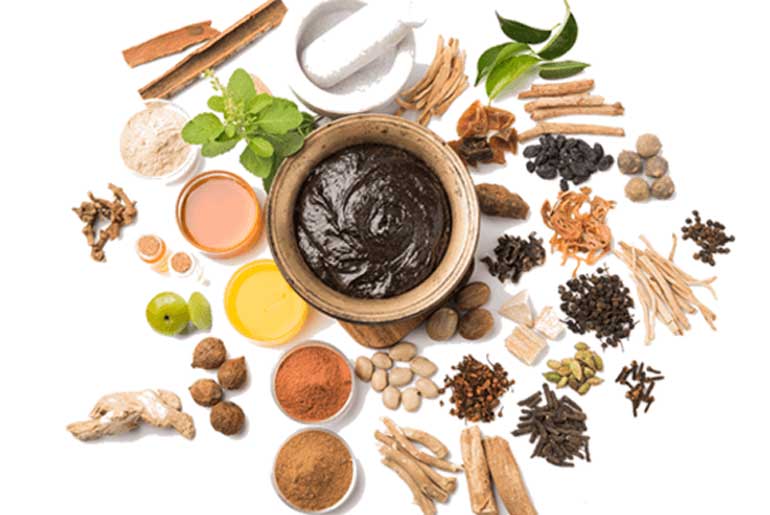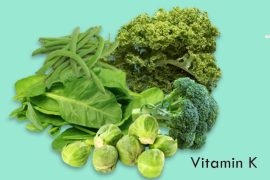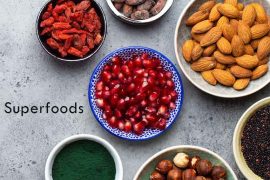Chyawanprash, an ancient elixir rooted in Ayurveda, boasts a powerful blend of over 30 herbs, primarily centered around amla (Indian gooseberry). Named after the sage Chyavana Rishi, it is renowned for its ability to delay the aging process, enhance strength, bolster immunity, and promote vitality. This jam-like concoction, considered a Rasayana in Ayurveda, acts to repair, rejuvenate, and nourish the body comprehensively, making it a valuable asset for maintaining excellent health.
According to ancient texts like the Mahabharata and Puranas, Chyawanprash’s origin story involves the Ashwini Kumar brothers, royal physicians to the Gods during the Vedic era. They created this herbal preparation to revitalize the sage Chyawan Rishi, restoring his youthfulness, vitality, and strength. Over time, this formula has been passed down through generations, becoming a trusted remedy with a holistic approach to health.
Chyawanprash is crafted with a base of amla and boiled alongside various herbs like ghee, dashamool, ashwagandha, shatavari, and more. The ingredients contribute to strengthening the body, repairing its functions, and preventing metabolic disorders, heart issues, and elevated cholesterol levels. Additionally, it aids in detoxification, offering a range of benefits that include improved vigor, vitality, and the potential to delay the aging process.
The term “Chyawanprash” itself is derived from the combination of “chyavana” (the name of a monk) and “prash” (consuming with intent). The concept of Rasayana karma in Ayurveda underscores the importance of nourishing the body’s first tissue, Rasa, which supports metabolism and immunity. In the modern era, where metabolic disorders and health challenges are prevalent, Chyawanprash stands as a testament to the timeless wisdom of Ayurveda, providing a holistic solution to promote well-being and adaptability in the face of urban stressors.
Chyawanprash’s Ancient Heritage:
The ancient connection of Chyawanprash is deeply rooted in Ayurvedic texts, notably the Charak Samhita. The discussion on treatment in the Charak Samhita begins with an extensive chapter on Rasayan karma, emphasizing the significance of building good immunity as the first step to health. Within this chapter, a plethora of intricately formulated rasayanas, both complex and simple, are detailed. Notably, Chyawanprash is highlighted as one of these rejuvenating formulations.
Chyawanprash finds its origin in the story of Chyavana Muni, who, due to his advanced age, faced challenges in continuing his spiritual practices and ashtang yogabhyas (eightfold path of yoga). To overcome this hurdle, he consumed Chyawanprash, an Avaleha or jam-like preparation. This Rasayana played a transformative role, rejuvenating his body, reversing the effects of aging, and enabling him to continue his spiritual journey towards liberation.
The compassionate sharing of this formulation, born out of a desire to alleviate the sufferings of the common masses, underscores the ancient wisdom embedded in Chyawanprash. Its roots in Ayurvedic scriptures highlight its role not just as a remedy but as a holistic elixir that addresses both physical and spiritual well-being. This ancient connection reinforces Chyawanprash’s enduring legacy as a time-tested and revered formulation in the realm of traditional Ayurvedic medicine.
Benefits of Chyawanprash:
Chyawanprash is indeed a traditional Ayurvedic formulation that is believed to offer several health benefits, especially during the winter season. It is a herbal jam made from a combination of various herbs, spices, and natural ingredients. While individual responses to such supplements may vary, many people claim positive effects from incorporating chyawanprash into their winter routine.
- Boosting Immunity: Amla (Indian gooseberry), a key ingredient in chyawanprash, is rich in vitamin C, which is known to boost the immune system. This can be beneficial in preventing and combating infections, coughs, and colds.
- Protection Against Infections: The combination of various herbs and ingredients in chyawanprash is believed to have antimicrobial properties, which may help protect the body against infections.
- Ashwagandha for Multiple Benefits: Ashwagandha, another component of chyawanprash, is an adaptogenic herb that may help the body adapt to stress. It is also believed to have positive effects on sleep, arthritis, and fertility, as you mentioned.
- Antioxidant Properties of Tulsi: Tulsi (holy basil) is known for its antioxidant properties, which can be beneficial for individuals managing conditions like high blood pressure and diabetes. Antioxidants help neutralize free radicals in the body, which are implicated in various health issues.
- Ghee for Warmth and Digestion: Ghee, a clarified butter, is considered to have warming properties according to Ayurveda. It is believed to help keep the body warm during the winter season. Additionally, ghee is thought to support digestion.
It’s important to note that while many people find these traditional remedies helpful, individual responses can vary. It’s always a good idea to consult with a healthcare professional before incorporating new supplements or herbal products into your routine, especially if you have pre-existing health conditions or are taking medications. Additionally, a balanced diet, regular exercise, and other healthy lifestyle practices are crucial for overall well-being.
How Chyawanprash Was Enjoyed in Ancient Eras:
In the Middle Ages, Chyawanprash played a significant role in helping individuals build immunity against consumption (tuberculosis), a prevalent disease during that time, particularly affecting the young and old. The herbal combination proved beneficial in preventing tuberculosis and boosting overall immunity.
Chyawanprash, a renowned Ayurvedic formulation, has gained international fame for its unique flavor and numerous health benefits. In ancient times, it was a common practice for people to incorporate Chyawanprash into their daily routines, typically consumed in the morning. The traditional method involved taking a small quantity, usually a spoonful or a prescribed dosage, mixed with lukewarm water or milk. This practice was believed to enhance its efficacy and absorption by the body.
Today, Chyawanprash can be consumed in various ways. It can be mixed with warm milk or water, and the heat aids in the better absorption of the herbal formulation. Alternatively, it can be consumed directly, spread on bread or crackers, or added to smoothies or juices. The versatility of Chyawanprash allows individuals to integrate it into their daily routines in a manner that suits their preferences and lifestyle.
From Ancient Times to Modern Days:
Chyawanprash, being a Rasayana, continues to be frequently prescribed in modern times to reduce dependence on antibiotics and enhance immunity against minor colds and coughs, particularly in children. The potent antioxidant properties of amla, a key component of Chyawanprash, not only boost immunity but also contribute to delaying age-related changes in old age when used regularly.
This herbal formulation is not only palatable but also meticulously crafted with highly regarded Ayurvedic herbs, making it very effective. While Chyawanprash has an extensive list of ingredients, the process of making it is relatively simple. Crafting it at home allows for control over the quality and adherence to the correct formulation guidelines, ensuring the desired health benefits. The tradition of using Chyawanprash as a natural immunity booster and preventive remedy continues to be relevant and beneficial in contemporary health practices.
Chyawanprash Caution:
Chyawanprash is generally considered safe and beneficial for most people, thanks to its natural herbal ingredients. However, moderation is key, as excessive consumption may lead to digestive problems such as diarrhea, bloating, gas, indigestion, and abdominal pain. The addition of sweeteners like jaggery, sugar, or honey to Chyawanprash for flavor means that individuals with high blood sugar levels should be cautious when consuming it. Diabetic patients need to monitor their blood sugar levels, and a daily allowance of around 3 grams is considered acceptable for those with controlled blood sugar.
Individuals with pre-existing health conditions, especially related to the liver, kidneys, or gastrointestinal issues, should consult a healthcare provider before incorporating Chyawanprash into their routine. The diverse herbal composition of Chyawanprash may potentially lead to stomach-related problems in certain cases. As with any supplement or herbal remedy, it’s essential to be mindful of individual health conditions and seek professional advice when needed.
Ways to Include Chyawanprash in Your Day:
The recommended dosage of Chyawanprash for adults is one teaspoon twice a day, preferably in the morning and evening, taken with lukewarm water or milk. For children, the maximum recommended amount is half a teaspoon per day. It’s important to adhere to these suggested doses to ensure the proper benefits without risking any potential side effects.
Individuals with asthma or other respiratory issues are advised to avoid consuming Chyawanprash with yogurt or milk. This precaution is taken to prevent any potential interactions or exacerbation of respiratory symptoms. As with any dietary supplement or herbal remedy, it’s advisable to follow recommended dosages and guidelines for safe and effective use. If there are specific health concerns or conditions, consulting with a healthcare professional is recommended.
Disclaimer:
The information contained in this article is for educational and informational purposes only and is not intended as a health advice. We would ask you to consult a qualified professional or medical expert to gain additional knowledge before you choose to consume any product or perform any exercise.









